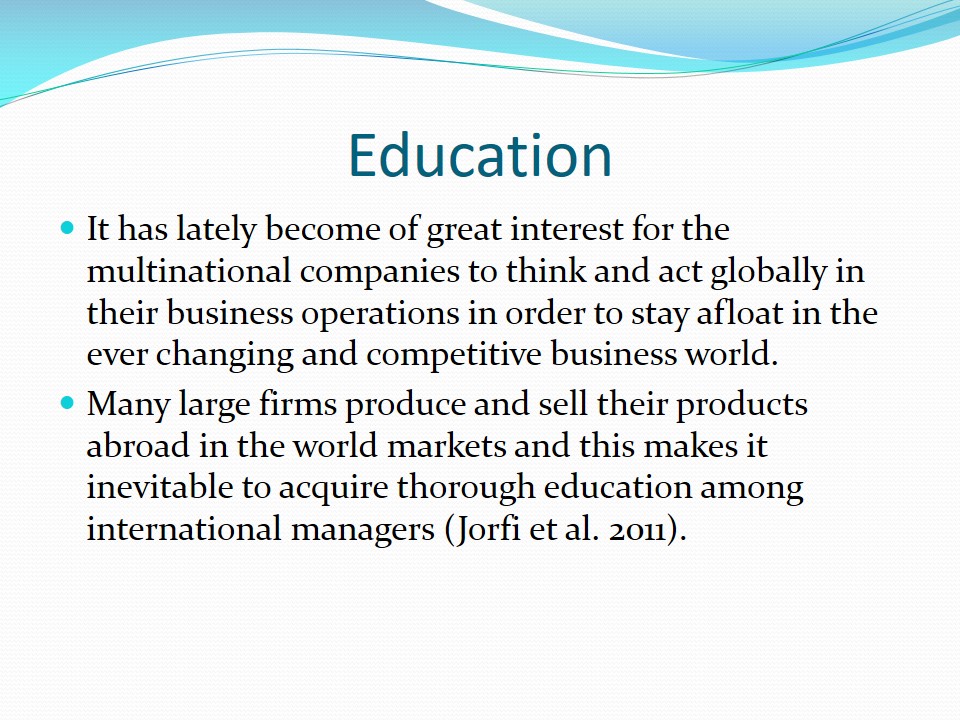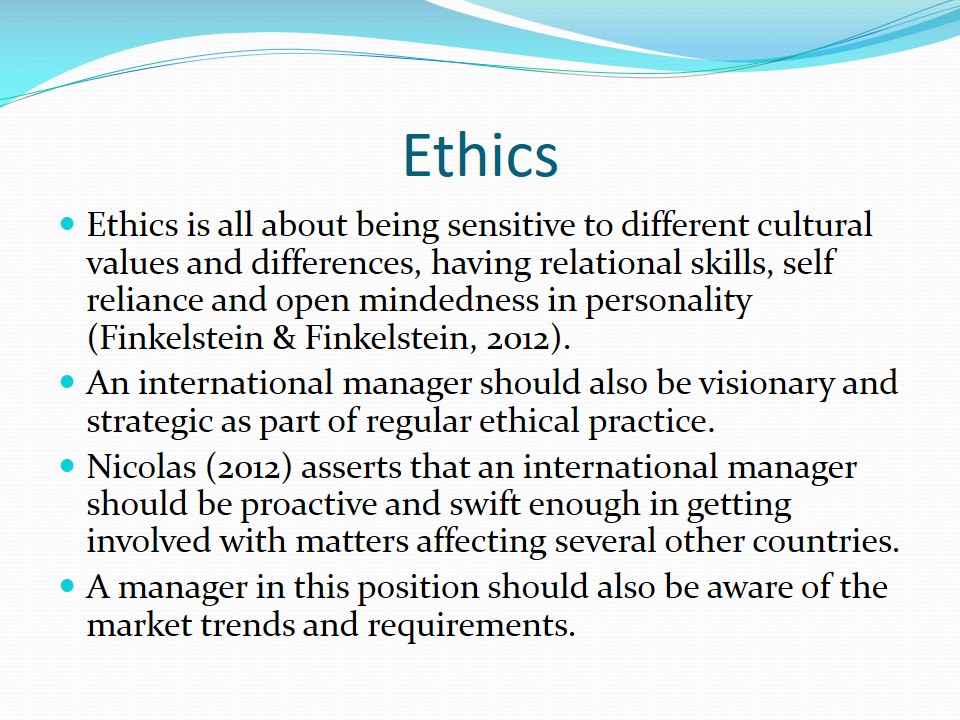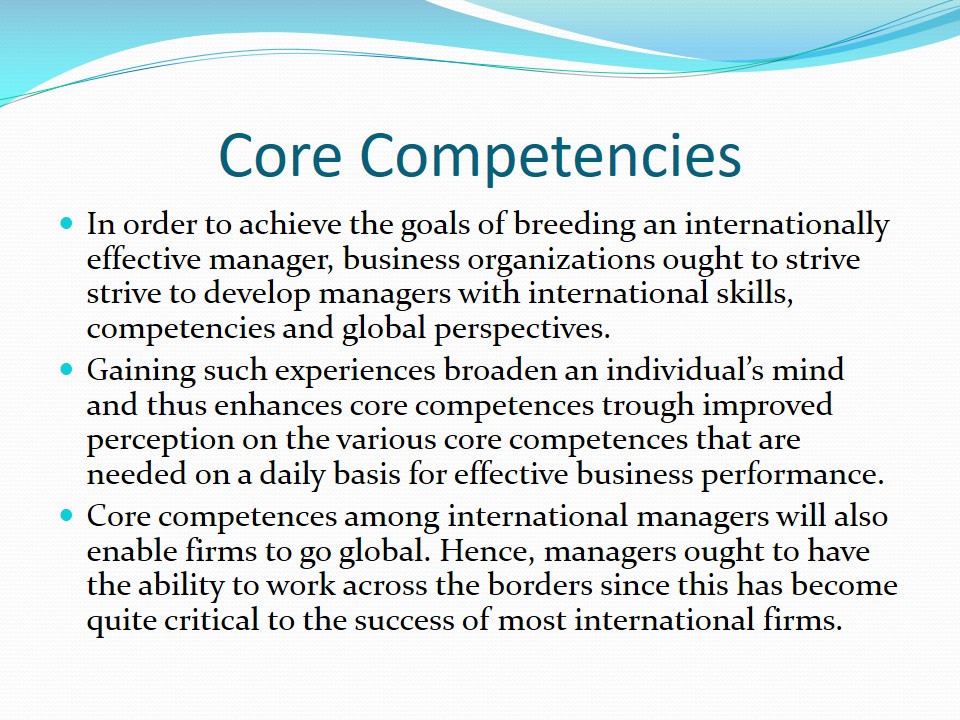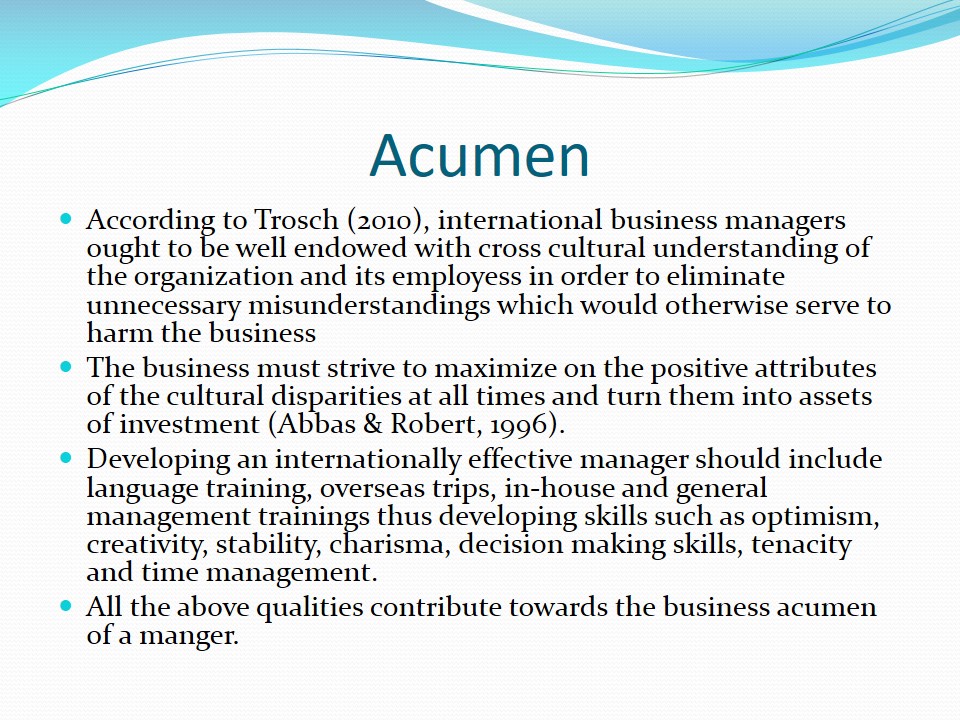Education
It has lately become of great interest for the multinational companies to think and act globally in their business operations in order to stay afloat in the ever changing and competitive business world.
Many large firms produce and sell their products abroad in the world markets and this makes it inevitable to acquire thorough education among international managers (Jorfi et al. 2011).
An international manager however is not one easy to find for they have to be people of high standing in terms of values, Education, Ethics, Core Competencies and Acumen.
An international manager should posses the highly cherished soft skills like being able to work as a team player at international levels, being highly adaptable to the changing dynamics of business and organizational environments.

Ethics
- Ethics is all about being sensitive to different cultural values and differences, having relational skills, self reliance and open mindedness in personality (Finkelstein & Finkelstein, 2012).
- An international manager should also be visionary and strategic as part of regular ethical practice.
- Nicolas (2012) asserts that an international manager should be proactive and swift enough in getting involved with matters affecting several other countries.
- A manager in this position should also be aware of the market trends and requirements.
A survey conducted recently as regards managers with international experience in Europe, the percentage of managers experienced internationally ranges between 1% in some UK companies compared to 80% in one company in Switzerland. Several firms have only 5-10% of their management staff likely to be experienced.

Core Competencies
In order to achieve the goals of breeding an internationally effective manager, business organizations ought to strive strive to develop managers with international skills, competencies and global perspectives.
Gaining such experiences broaden an individual’s mind and thus enhances core competences trough improved perception on the various core competences that are needed on a daily basis for effective business performance.
Core competences among international managers will also enable firms to go global. Hence, managers ought to have the ability to work across the borders since this has become quite critical to the success of most international firms.
One most effective way of achieving this goal is through direct participation in international task forces by living and working abroad.

Acumen
According to Trosch (2010), international business managers ought to be well endowed with cross cultural understanding of the organization and its employess in order to eliminate unnecessary misunderstandings which would otherwise serve to harm the business.
The business must strive to maximize on the positive attributes of the cultural disparities at all times and turn them into assets of investment (Abbas & Robert, 1996).
Developing an internationally effective manager should include language training, overseas trips, in-house and general management trainings thus developing skills such as optimism, creativity, stability, charisma, decision making skills, tenacity and time management.
All the above qualities contribute towards the business acumen of a manger.
Jorfi et al. (2011) say that these skills give the company managers the wisdom to have a competitive edge and insight into the global market trends therefore being able to apply them for the good of the company in the most unique way possible thus cutting a niche of identity for the company and creating a positive brand name with the clientele base which in turn ensures the business continuity.

References
Abbas, J. A. & Robert, C. C. (1996). Global managers: qualities for effective competition. International Journal of Manpower, 17(6/7), 5 -18.
Finkelstein, J. & Finkelstein, M. (2012). The Good Boss. Aircraft Maintenance Technology, 23(2), 32-33.
Jorfi, H., Jorfi, S., Yaccob, H. & Shah, I. (2011). Relationships among Strategic Management, Strategic Behaviors, Emotional Intelligence, IT-business Strategic Alignment, Motivation, and Communication Effectiveness. International Journal of Business and Management, 6(9), 30-37.
Nicolas, S. (2012). What makes a good leader? Director, 65(5), 36-37.
Trosch, D. (2010). Enhancing Portfolios with Global Equity Managers. The Journal of Wealth Management, 13(1), 51-61,8.